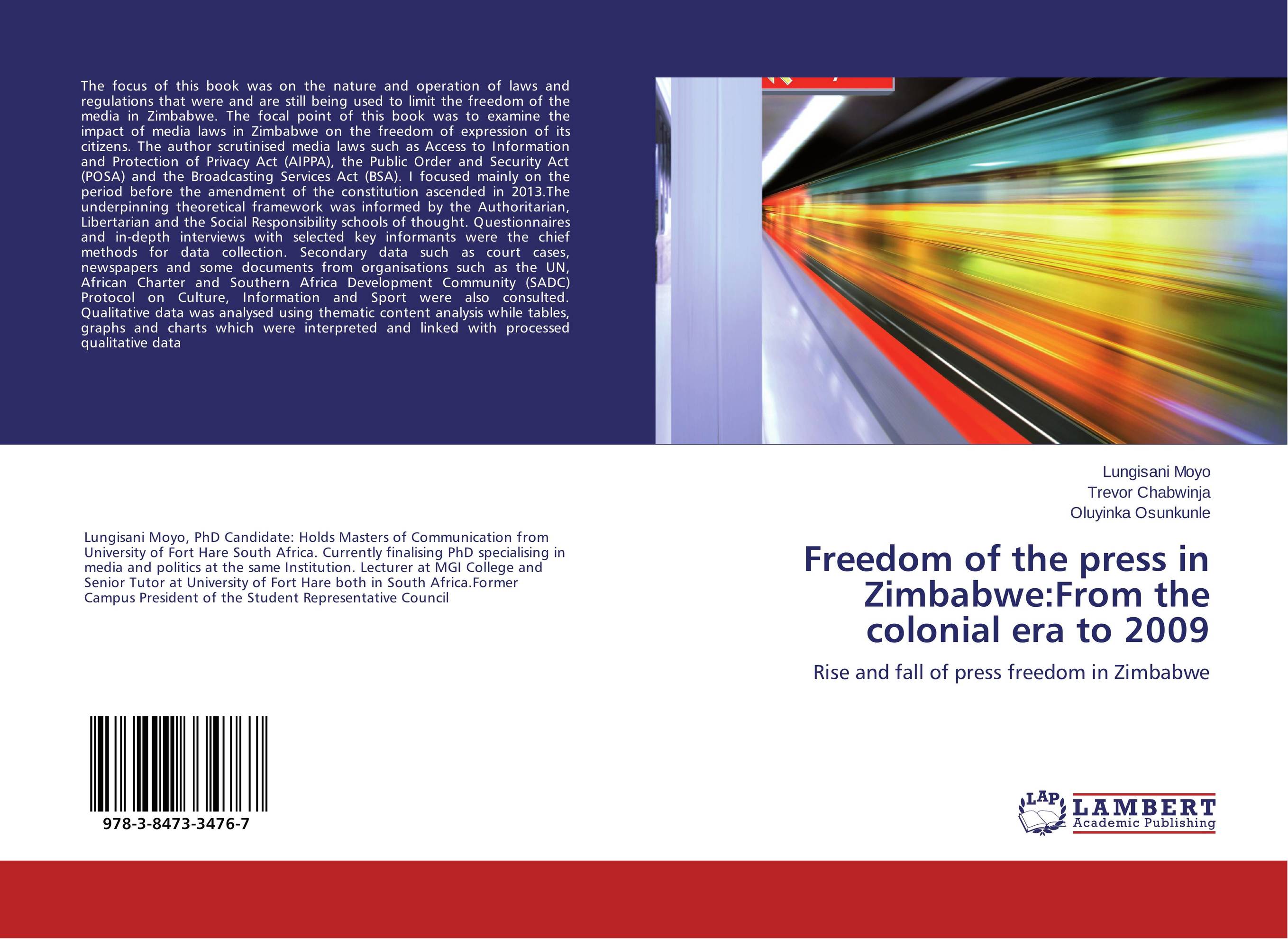| Поиск по каталогу |
|
(строгое соответствие)
|
- Профессиональная
- Научно-популярная
- Художественная
- Публицистика
- Детская
- Искусство
- Хобби, семья, дом
- Спорт
- Путеводители
- Блокноты, тетради, открытки
Freedom of the press in Zimbabwe:From the colonial era to 2009. Rise and fall of press freedom in Zimbabwe

В наличии
| Местонахождение: Алматы | Состояние экземпляра: новый |

Бумажная
версия
версия
Автор: Lungisani Moyo,Trevor Chabwinja and Oluyinka Osunkunle
ISBN: 9783847334767
Год издания: 2015
Формат книги: 60×90/16 (145×215 мм)
Количество страниц: 92
Издательство: LAP LAMBERT Academic Publishing
Цена: 34044 тг
Положить в корзину
| Способы доставки в город Алматы * комплектация (срок до отгрузки) не более 2 рабочих дней |
| Самовывоз из города Алматы (пункты самовывоза партнёра CDEK) |
| Курьерская доставка CDEK из города Москва |
| Доставка Почтой России из города Москва |
Аннотация: The focus of this book was on the nature and operation of laws and regulations that were and are still being used to limit the freedom of the media in Zimbabwe. The focal point of this book was to examine the impact of media laws in Zimbabwe on the freedom of expression of its citizens. The author scrutinised media laws such as Access to Information and Protection of Privacy Act (AIPPA), the Public Order and Security Act (POSA) and the Broadcasting Services Act (BSA). I focused mainly on the period before the amendment of the constitution ascended in 2013.The underpinning theoretical framework was informed by the Authoritarian, Libertarian and the Social Responsibility schools of thought. Questionnaires and in-depth interviews with selected key informants were the chief methods for data collection. Secondary data such as court cases, newspapers and some documents from organisations such as the UN, African Charter and Southern Africa Development Community (SADC) Protocol on Culture, Information and Sport were also consulted. Qualitative data was analysed using thematic content analysis while tables, graphs and charts which were interpreted and linked with processed qualitative data
Ключевые слова: freedom of expression, Human Rights, Media legislation



